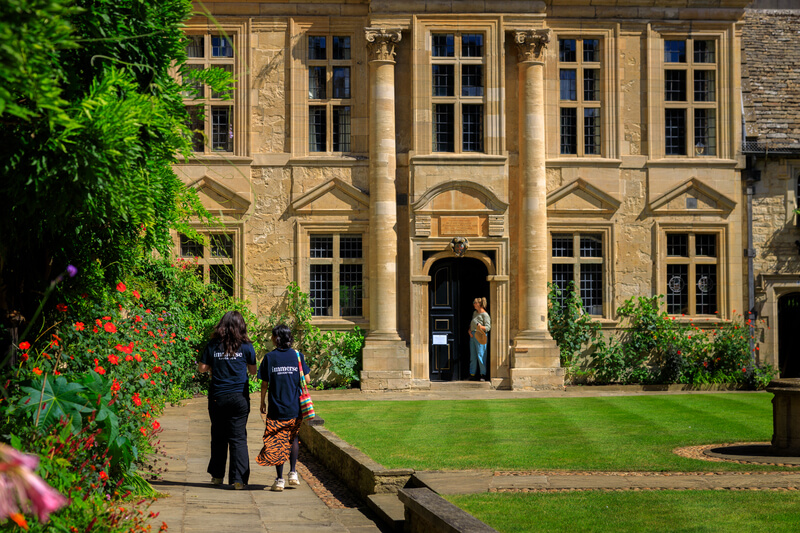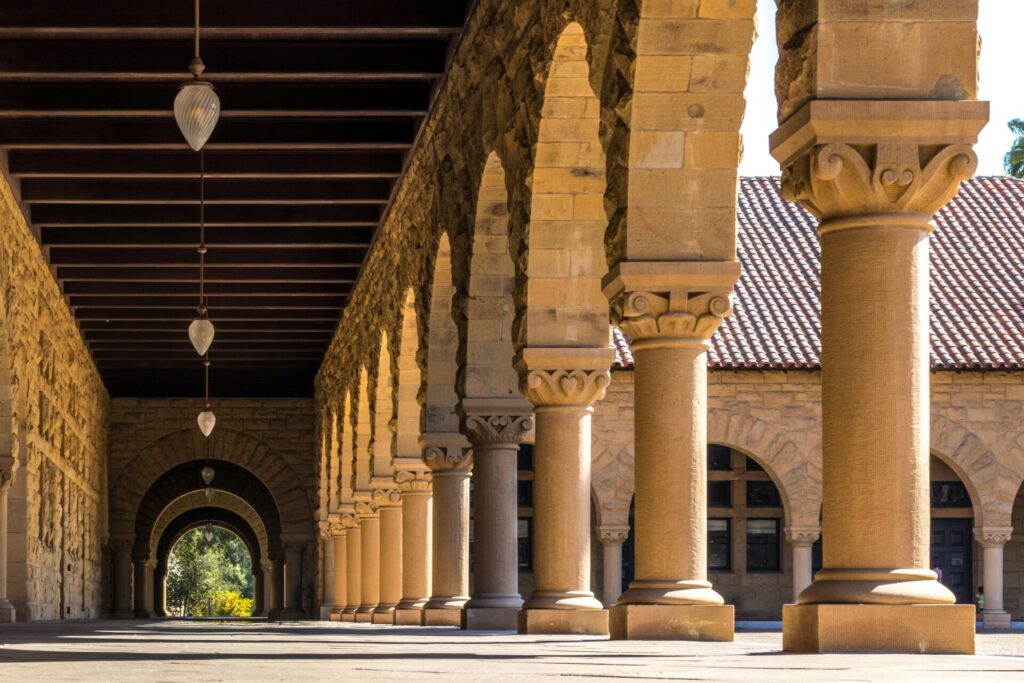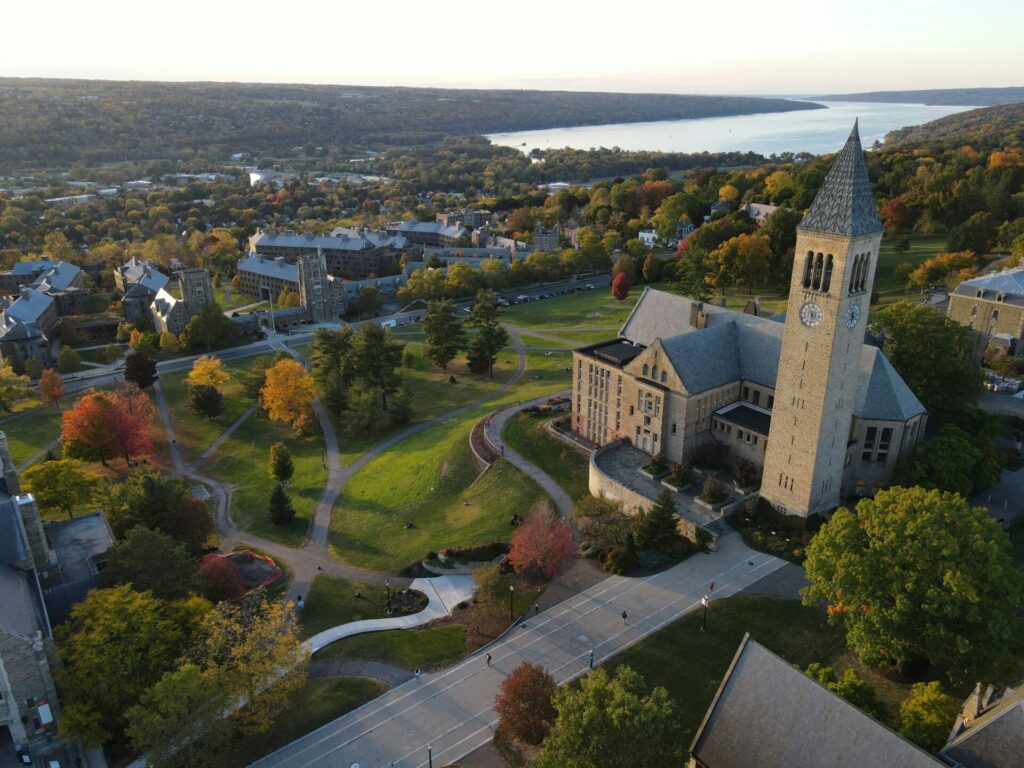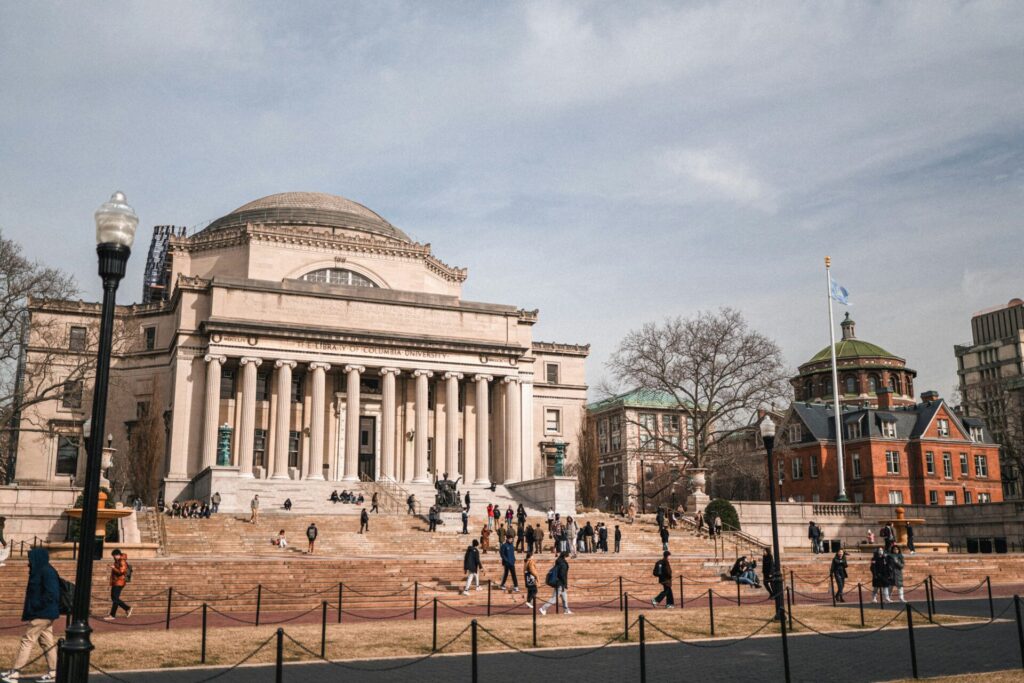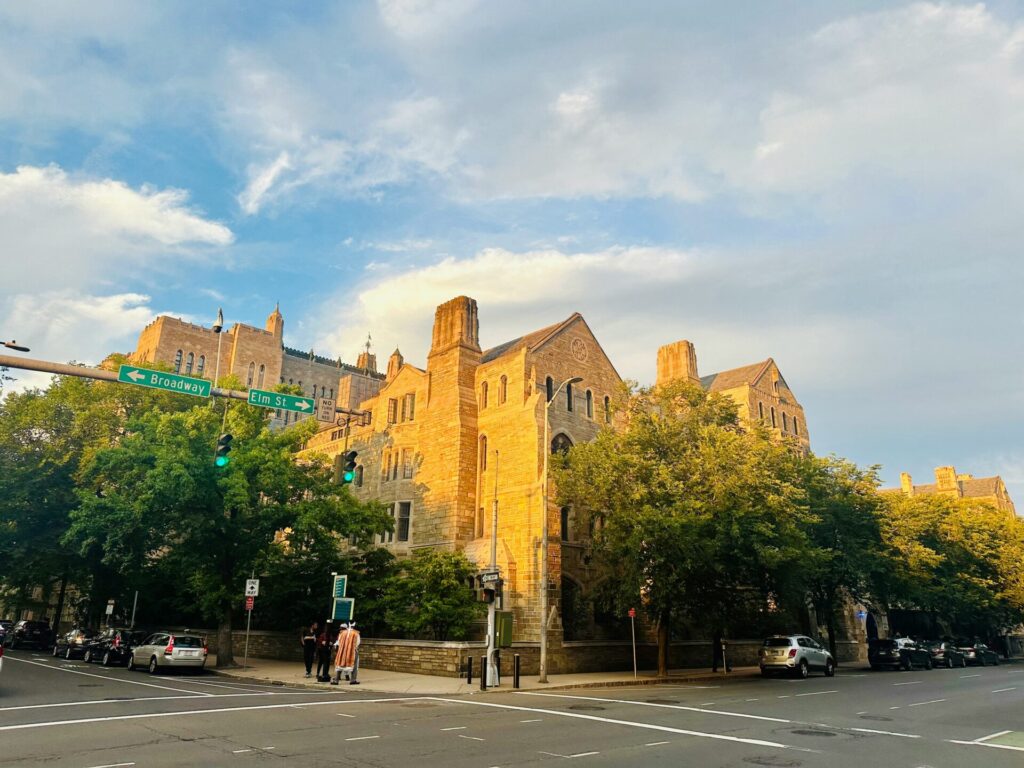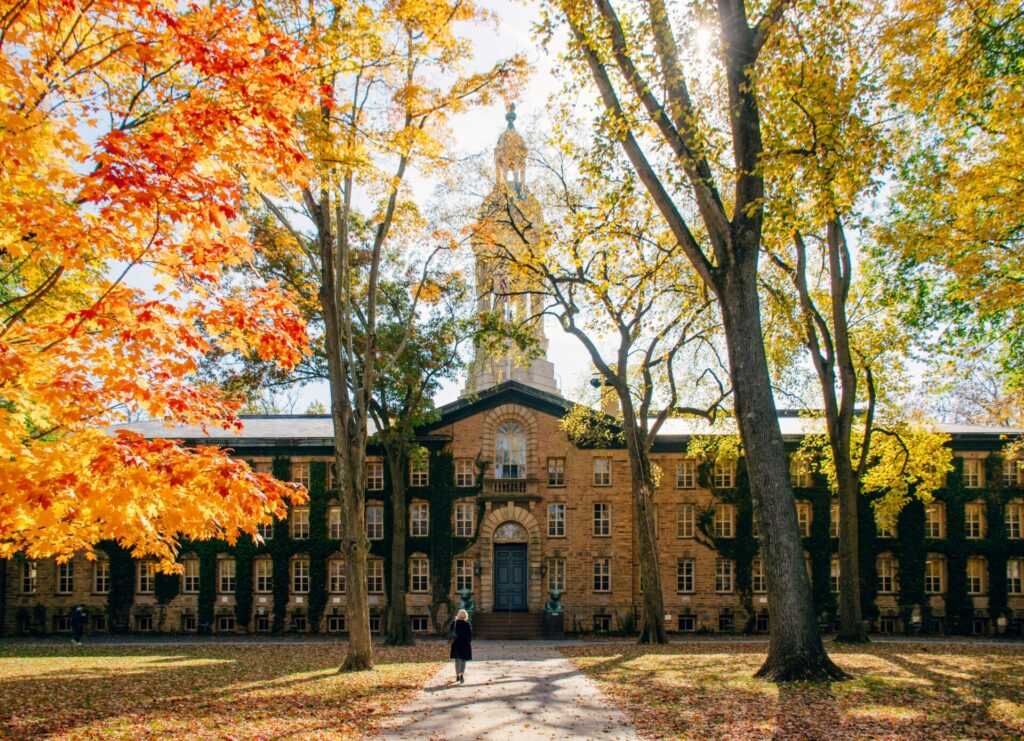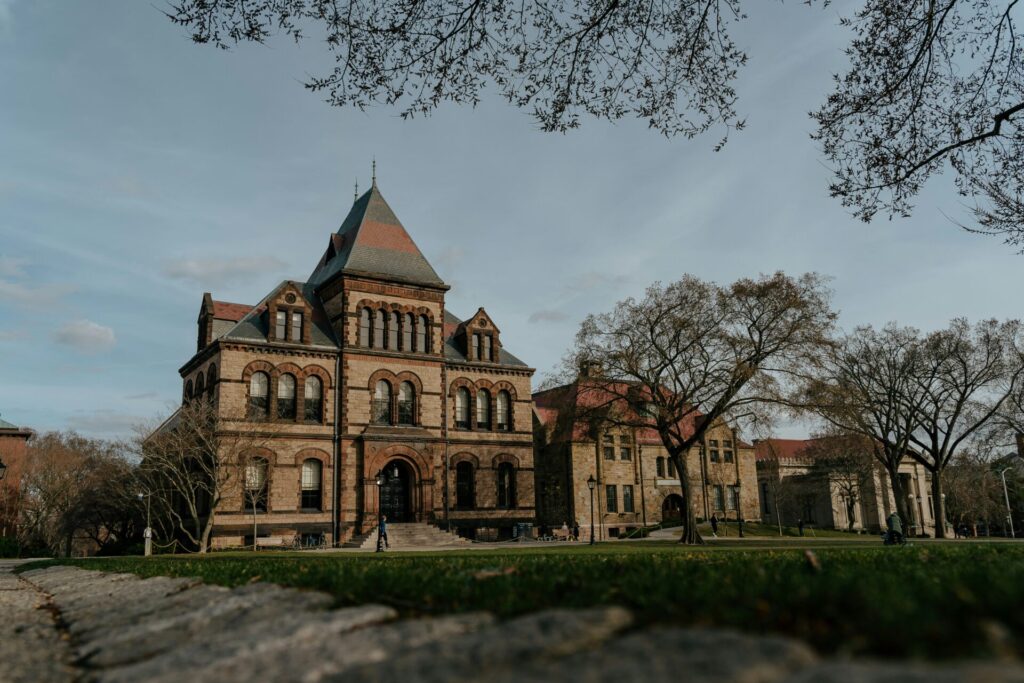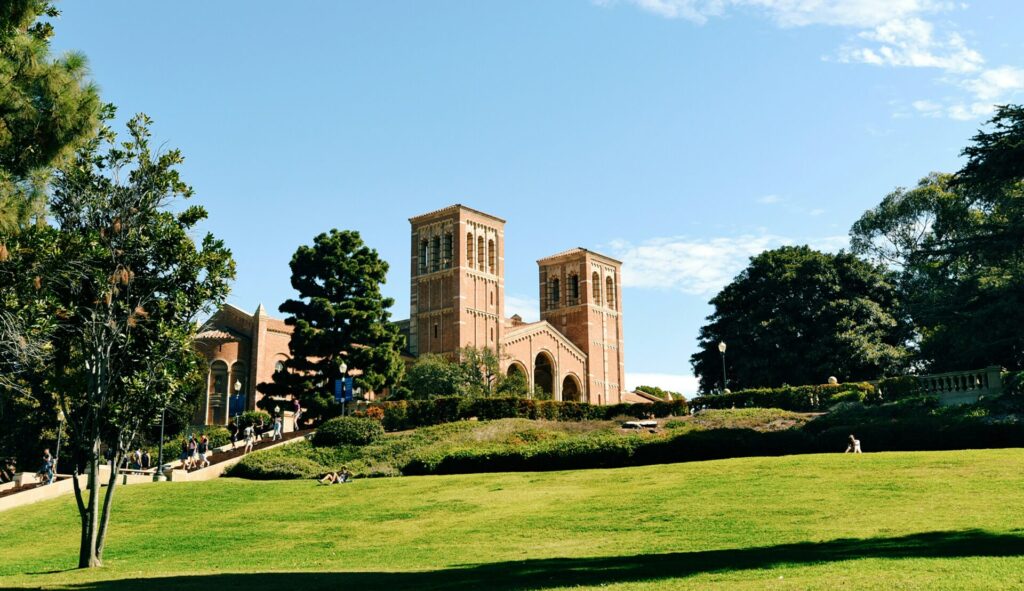The Times Higher Education proclaims the University of Oxford the # 1 university worldwide. Oxford is a gold standard for world-leading education. But you may be asking yourself how many colleges are in Oxford and which college is best for you?
Each Oxford college has their respective specialities. What if you miss out on the college that’s best suited for your personal goals? It’s actually why loads of high school students attend an oxford summer program to help give them a flavour of collegiate life.
Have no fear. In this article, you’ll have the basic introduction you need to get yourself grounded. Then, after reading, you’ll better understand what you want to do!
How Many Colleges Are In Oxford?
In general, Oxford has 45 colleges. To be more specific, Oxford has 39 colleges and six private halls. What’s the difference between Colleges and Private Halls, you ask? Great question!
An Oxford College is self-governing and financially independent. Each college connects to the central Oxford University in a federal system. Just like the federal government of the United States.
What about private halls? The private halls are also self-governing and financially independent like the colleges. But there are three main differences:
- The founders of private halls are specific Christian denominations
- They are usually smaller
- Offers fewer courses
How does this federal academic system relate to the student? Every undergraduate student at Oxford is an automatic member of a particular college and the Central University.
The colleges and halls are interconnected in a close academic community that helps each other foster. You can imagine how rich the Oxford community is with members from various fields, cultures, and countries!
List of Oxford Colleges
Here you’ll see the list of Oxford Colleges divided into 3 sections: General, Private Halls, and Graduate Students Only.
General Oxford Colleges
Below are Oxford Colleges that are open to undergraduates
Balliol College
Balliol College is one of the largest and oldest Oxford colleges. John I de Balliol co-founded the academic institution with his mother, Dervorguilla of Galloway. Its aim is to cultivate education at both undergraduate and graduate levels.
Brasenose College
Visitors often say Brasenose College has “the oddest name in Oxford.” The speculation is that it comes from the “brazen,” nose-shaped door knocker of the hall. Want another interesting fact? 48% of Brasenose applicants were invited for an interview. So guess who asked a large portion of them? Brasenose itself!
Christ Church
Christ Church uses the tutorials system. Matching students with expert tutors in small groups. Allowing students to have the best learning experience there can be. What makes Christ Church unique? Oxford’s Cathedral with its acclaimed choir. It’s also home to the Picture Gallery, holding historically significant Old Master paintings.
Corpus Christi College
Corpus Christi is known to be Oxford’s first true Renaissance institution of Oxford. It’s a 500-year academic institution that values inclusivity and innovative principles. Whatever your country of origin, you can call it your home.
Exeter College
Exeter College is Oxford’s 4th oldest. It has had the exact location on Turl Street since its founding in 1315. What is the core of Exeter’s College strategy? Sustainability. The goal is to prevent and reduce climate change and its harmful effects.
Harris Manchester College
Harris Manchester College is the only Oxford college exclusive to students aged 21 and older. That’s why it’s known as the “Oxford’s college for mature students.” It believes that life-long learning is the future of education. Recognising that people decide to take higher education at various points in their lives.
Hertford College
Hertford College has 4 priorities from 2020 to 2030, including excellent teaching and research, sustainability, community, and world-class facilities. So do you want to apply to their undergraduate program? There are 4 qualities they’re looking for: top-notch academic record, passion for your subject, ambition for excellence in your course, self-starter maximising opportunities.
Jesus College
Queen Elizabeth I founded Jesus College in 1571 to fulfil the requests of Hugh Price. It still has the Dining Hall, Chapel, and Principal’s Lodgings serving their original purposes. But they have a new addition to their building that will open in 2022 – the Cheng Yu Tung Building. Jesus College aims to attract the brightest minds from various backgrounds.
Keble College
Keble College is a 150-year-old institution that fosters learning, ambition, and passion. It’s one of Oxford’s largest colleges, with over 800 intelligent and curious minds. Every year, it welcomes around 130 undergraduates. You’re the ideal candidate if you aspire for academic and intellectual excellence!
Lady Margaret Hall
The Lady Margaret Hall is famous for being the Oxford College to welcome women. The fateful event happened in October 1978. However, the pioneering streak didn’t end there. Because in 2016, it’s the first Oxbridge college to initiate a Foundation Year to give under-represented students access to Oxford education.
Lincoln College
The 600-year-old Lincoln College nurtures a small, friendly, close-knit undergraduate community. It receives only about 90 students a year. Its active mission? To promote sustainability. Did you know that all its electricity comes from renewable sources? Plus, it achieved lowering its endowment fund’s exposure to fossil fuels. Down to 0.4% as of January 2022!
Magdalen College
In 1458, William Waynflete founded Magdalen College with over 40 Fellows, 30 scholars, and a massive choir for his chapel. Making up the largest foundation in Oxford. William was Lord Chancellor and Bishop of Winchester who wanted his college to be the grandest. Today, Magdalen College has the most Nobel Prizes or Fields medals (8) among all Oxford Colleges.
Mansfield College
Do you know that in 2021, the City of Sanctuary named Mansfield College one of the UK’s first University Colleges of Sanctuary? That’s because Mansfield College is dedicated to championing equality, diversity and access. It welcomes those who seek sanctuary, including asylum seekers and refugees.
Merton College
Merton is one of the most ancient Oxford Colleges, along with Balliol College. Its founding year goes as far back as 1264. It served as the model for all the later Oxford and Cambridge colleges. Its breathtaking gardens and glorious 13th-century chapel attract visitors all year round.
New College
New College is famous for being one of the most beautiful Oxford Colleges. With its massive gardens, medieval cloisters, and classic dining halls. New College students describe the community as “family.” And they strive to maintain a close-knit atmosphere for the generations to come.
Oriel College
Oriel College is one of the friendliest Oxbridge Colleges there is. Home to over 300 undergraduate students. They put a premium on their students’ social and academic integration into college life. Though its founding date goes about 1326, most of its buildings date from the 17th century.
Pembroke College
At Pembroke College, it’s all about nurturing the spirit of lifelong learning. If you cultivate intellectual curiosity, you’ll fit right in! Establishing a supportive community is another one of its pillars. Pembroke believes that a mix of diverse members makes the community stronger.
The Queen’s College
Chaplain Robert de Eglesfield, who served Queen Philippa, founded the “Hall of the Queen’s Scholars at Oxford” in 1341. As you may have guessed, he named the school in honour of the queen. Queen’s College focuses on advancing two services: education & research and religion.
Somerville College
The core of Somerville is hope and determination to refuse the status quo. It accepted women when other universities declined to take them in. And it welcomed people of diverse beliefs when others wouldn’t tolerate them. To this day, Somerville College works together as a community to support progressive causes. Especially advocating for civil rights and sustainability.
St Anne’s College
Calling all the brights and most ambitious students! St. Anne’s College’s objective is to be your home, no matter where you come from. It believes that we should respect differences and celebrate diversity. One of its founding goals is to widen access to Oxford Education. Making it accessible by helping students live in affordable lodgings across Oxford city.
St Catherine’s College
St. Catherine’s College is the largest Oxford College. And the youngest one too! Its roots go back to 1868 as a result of the “Delegacy for Non-Collegiate Students.” The Delegacy allowed students to access Oxford Education by lowering costs. Although it’s a modern college, it still carries the traditions of Oxford. Its motto is “Nova et Vetera,” which means “new and old.”
St Edmund Hall
Beloved students and alumni nicknamed St. Edmund Hall “Teddy Hall.” Its medieval hall is the last standing in Oxford. Teddy Hall has a 10-year plan for the next decade. And that’s to become one of Oxford’s greenest and most sustainable academic institutions. May the Hall flourish!
St Hilda’s College
Excellence and Equality are the two main tenets of St. Hilda’s College. Its commitment? To promote a learning environment where every voice is heard. Giving students the freedom to question and challenge. And encouraging them to be independent thinkers who will shape the future for the better.
St Hugh’s College
Did you know that Elizabeth Wordsworth built St Hugh’s College in 1886 to offer Oxford education to poorer women? Today, it welcomes students from every gender, ethnicity, race, and religion. Offering them a home away from home.
St John’s College
The Guardian states that St John’s College is the wealthiest Oxford College. With assets amounting to £600m. Here’s an interesting fact, do you know St John’s College is committed to giving students financial and educational support? It believes that finances should never hinder any student who wants to study at Oxford.
St Peter’s College
St. Peter’s College is distinctive with its spirit of informality, creativity, and energy. Its founders are Bishop Francis James Chavasse and his son Christopher Maude Chavasse. The original intention? To provide poor students with tremendous potential for a low-cost Oxford education. Regardless of their background. In fact, it opened its doors to Black undergraduates since its foundation.
Trinity College
Sir Thomas Pope, a councillor of Queen Mary Tudor, founded Trinity College to serve as a training house for Catholic priests in 1555. Today, it’s dedicated to forwarding sustainability, inclusivity, and empowerment. Trinity College continues to succeed in representing students from marginalised backgrounds. With an increase to 68% in 2020, compared to just 50% in 2015.
University College
One of the most notable features of University College is its Young Univ Gallery. Former Master Sir Ivor Crewe established it in 2019 to counter the traditional only-white-men portraits decorating Oxford halls. Now you will see photos of women and people of colour to promote diversity and inclusivity.
Wadham College
Do you know that Wadham College is the birthplace of the Royal Society? Thanks to its 6th Warden, Dr John Wilkins. His advocacy for a radical and ‘experimental’ approach to science attracted scientists and philosophers to Wadham. Making it the scientific hub of Europe. His informal group of enthusiastic minds became the Royal Society in 1660.
Worcester College
Worcester College is a forward-looking community that’s open and accessible to everyone. It’s a friendly college with over 400 undergraduate and 200 graduate students. Worcester is popular for its fantastic sports facilities. In fact, it’s the only Oxford College with on-site sports grounds!
Private Halls
Blackfriars Hall
Blackfriars Hall is an academic centre for theology and philosophy. It has three thriving communities flourishing with one another: students, academics, and religious. Do you know who inspires the intellectual tradition of Blackfriars? None other than St Thomas Aquinas.
Campion Hall
Campion Hall is the capital of the Jesuit community in Oxford. What makes its intellectual experience unique? The combination of Oxford and Jesuit traditions and philosophy. Its mission? The service of “all things human.”
Regent’s Park College
Regent’s Park College specialises in the Arts and Humanities. It supports an inclusive community where great minds can achieve wonderful things together. Do you know it’s one of the first Oxford Colleges to show public support to the LGBTQ+ community? Yes, by flying the Rainbow Flag. It’s where anyone who wants to achieve their full potential can thrive.
St Benet’s Hall
One of the defining aspects of St Benet’s Hall is forming St. Benet’s Institute. What for? To attend to three tenets: Faith, Leadership, and Dialogue. It aims to bring communities together for interdisciplinary dialogue. The hope is that the cross-sectoral interaction can prove a positive change in addressing global human challenges.
St Stephen’s House
St Stephen’s House is an Anglican college offering courses in three main categories: ministerial formation, teacher education, and advanced study of theology, music, and theology. It’s an intimate community nurturing about 80 students.
Wycliffe Hall
Wycliffe is the Evangelical college of Oxford. What is its core emphasis? Christian community and commitment. Here students participate in active worship life. Integrating Christian principles into their academic life. It accepts students over 21 who desire to take degrees in Theology, Philosophy, and Religion.
Graduate Students Only
All Souls College
All Souls College is a research academy focusing on social science, humanities, and theoretical science. Do you know why it’s called “All Souls”? Because the Warden and original 40 Fellows were to pray for the “faithful departed” souls. Especially of their founders and those who died in the wars in France.
Green Templeton College
If you plan to return to studying after gaining work experience, consider Green Templeton College. Individuals who want to bring their families with them or who want to change careers love to flock to Green Templeton. It offers health and medicine, social sciences, and business and management courses.
Kellogg College
What Oxford College has one of the largest and most international student populations? Kellogg College. It has over 1400 students and 100 Fellows of 100 different nationalities. William Keith Kellogg established the college in 1990 with a straightforward mission. To make graduate school more accessible.
Linacre College
Linacre College is an international and interdisciplinary graduate school. With a diverse student body with over 133 nationalities. One of its primary goals is to be a green college. How? By improving energy efficiency and energy saving. Also, by promoting environmental awareness among its students.
Nuffield College
Are you passionate about the social sciences? It’s Nuffield’s speciality. Do you know that Nuffield College was the birthplace of the “Oxford School” of Industrial Relations? It was a pioneer in developing cost-benefit analysis for developing nations. Today, it carries on in bringing groundbreaking research in social science.
Reuben College
Reuben College is the newest graduate of Oxford University College, founded in 2019. What makes else makes Reuebn College unique? The Reuben Foundation values partnerships at its core. It recently increased its scholarship programme for undergraduates at Oxford University.
St Antony’s College
St Antony’s College is committed to addressing global and regional concerns. How? Through research and education. Do you know that St Antony’s has seven research centres? They focus on several places, including Europe, Africa, and Asia.
St Cross College
In many Oxford Colleges, there’s a clear distinction between Fellows and students. In terms of what facilities they can access. But not in St Cross College, where students and Fellows are on equal terms. They have standard rooms open to everyone. For what purpose? To encourage a free flow of knowledge and expertise among juniors and seniors.
Wolfson College
Wolfson College, just like St Cross, also follow an egalitarian approach. With hardly any distinction between students and Fellows. It also encourages its students to involve themselves in running the college. One of the main goals of Wolfson College is to increase its scholarships. In 2020, about 41 students enjoyed financial support in their Oxford Education.
Does Oxford Offer Undergraduate Degree?
Yes, Oxford offers many undergraduate degrees. Here’s a comprehensive list:
Are you passionate about studying mankind? Archaeology examines artefacts and physical remains to study human prehistory and history. Anthropology takes the holism approach in studying humanity. Taking into consideration everything from human biology and behaviour to culture and linguistics.
Biochemistry studies chemical processes in living organisms. It uses molecular methods to analyse and influence biological processes. Do you want to make a difference in drug production, forensic science, and environmental preservation? Then consider taking this degree.
Biology is the study of living organisms. You’ll study the physiology and anatomy of various species, including plants, animals, and fungi. Plus, you’ll examine the relationships between species and how they interact with their habitat. Biology is such a wide-ranging field that you can become a marine biologist or a molecular geneticist!
What is the one thing Biomedical Sciences is concerned with? The treatment of human diseases. To that end, you’ll draw from biology and medicine. To understand how the human body operates, from its systems down to its cells. The course doesn’t provide medical training. Instead, it trains students for laboratory work and research.
Innovation in the modern world is hardly possible without chemists. Do you want to be a part of technological progress? Investigate matter at the atomic and molecular scale. So you can learn how to use it to improve human life.
Are you interested in studying ancient civilisations and their remnants? In this non-linguistic course, you’ll use the principles of Archaeology and Ancient History to unearth Classical Antiquity. And how it influences our society to this day.
Classics examines the ancient world of Romans and Greeks by studying the ancient languages. So you can analyse the original texts! You’ll also study archaeology, history, and philosophy to maximise learning.
Eager to take on both Classics and English Literature? Here you’ll have the opportunity to study both and compare them. What common characteristics are there that survived the test of time? And how did people change the way they imagine and write?
How did the ancient languages and cultures shape the modern languages we have today? This course will let you study primary literary texts of the Classics and Modern Languages. And you’ll undergo training to develop your linguistic skills. Modern Languages include French, German, and Spanish.
Interested in learning an Oriental Language? Classics and Oriental Studies studies an Oriental Language with Latin and/or Greek. It also dives deep into the cultural development of societies like Egypt, China, Korea, and India.
The core interest of Computer Science is having a thorough understanding of computer networks and systems. To what aim? To design and use computers with ease and efficiency. Our progress in understanding computers has a tremendous impact on business, science, and culture.
Computers impact mankind in all aspects of life, from social and educational, to commercial and political. There is much cause to celebrate the technological advancement we experience at breakneck speed. But it also raises crucial philosophical and ethical issues, including data privacy, employment impact, and legal regulation. How do you address these issues?
Did you ever wonder where the Earth comes from? How does it develop, and what we can expect from it in the future? If so, you’d love to study Earth Sciences. Taking this course will teach you how to interpret rock materials. And even map seismic waves!
What is economics? It studies how consumers distribute scarce resources. While management is all about effectively using resources within an organisation to achieve its goals. Combine these two together, and you’ll be ready to tackle the resource-related issues that face our world.
Engineering Science is about inventing, building, and improving machines, devices, and systems. To solve real-world problems that plague our world. To do so, you need to have a good grasp of the six branches of engineering. As well as hands-on industrial experience. Are you up for it?
What is one of the best ways to develop your English writing skills? By studying its origins. All the way from the Anglo-Saxon era to the present day. You also have the opportunity to learn English works from other parts of the world. Elevating your reading skills and comprehension to global levels.
Do you want to take an extensive study of the English Language, along with the other European Languages? Here you’ll study English works written across various eras. Think Renaissance, Romantic, and Victorian. Along with practical training to develop your linguistic skills.
Some of the European Languages include Bulgarian, Dutch, and Swedish. For the Middle Eastern Languages, there are Arabic, Hebrew and Persian. In this course, you can choose what combination interests you most. Pairings reveal cultural links that deepen your insight into historical and present interactions.
Do you want to become an artist? Fine Art is the study and creation of visual art. Not only will you enhance your art skills. But you’ll also enrich your mind with the various international histories of contemporary art. While learning how to collaborate with your fellow artists-in-making.
You can think of Geography as the bridge between natural and social sciences. It’s an interdisciplinary degree where you can develop a wide range of transferable skills. You’ll tackle several issues, such as climate change, biodiversity loss, and globalisation.
The History degree in Oxford gives an extensive sweep of past events. One of the course’s best features is its freedom. You can choose to study what era of British and European history catches your interest most. What about if you want to check out the history of other nations? You can!
There are several periods of History you can study. Here you’ll zero in on Ancient and Modern History. Did you know that even when narrowed down, you still have more than 90 options? You’ll also learn methods to compare societies and gain the best insights possible.
History and Economics equip you with the skills historians and economists have. Historians have sharp critical thinking skills. Allowing them to make sense of evidence and defend their position through argumentation. While economists are savvy analysts who are excellent at interpreting quantitative data. What a fantastic way to prepare you for your career!
History and English examine past written records. By using the methodologies of both subjects to decipher meaning. Here you’ll treat historical documents as you would poems and novels. All are open to the reader’s interpretation. At the same time, you’ll also see literature as a way to interpret culture based on history.
In History and Modern Languages, you can choose which single European Language you want to focus on. Then you’ll expand your understanding by interrogating relevant historical documents. What political, social, and economic factors influence your chosen language? How has its use changed and developed throughout the years?
Many of the political phenomena you see today have deep, historical roots. Take the opportunity to examine politics through the eyes of history. Also, learn to study history from the perspective of political science. You can choose which historical era and political system you want to combine.
Do you know that anything humans design has specific visual qualities unique to its place in history? In History and Art, you’ll examine art through the lens of history. Take a look at the historical artefacts from around the world. What did the artists want to convey through the media, shapes, and colours they used?
Many issues confronting human societies, such as disease, nutrition, environmental conservation, and diversity. How best do you address them? That is what Human Sciences aim to answer. And it does so by interconnecting different perspectives, including biological and social points of view.
Taking Law equips you with the necessary skills to succeed as a lawyer. Do you know the core strength of Oxford Law? It’s training you to think for yourself. You’ll have the primary resources you need to understand what law is. But you’ll have to think further to decipher the why and the how.
The 21st century enjoys advanced technological advancement. But it wouldn’t reach far if it weren’t for developing advanced materials. These materials serve as the building blocks to allow for more sophisticated inventions. In this course, discover how to create new materials and manufacturing processes.
Mathematics at Oxfords will not confine you to solving formula problems on your desk. It will help you use maths in explaining real-world phenomena! Do you want to understand how a leopard gains its spots? How about making precise predictions in the stock market? You can by using mathematical principles!
Do you want to understand how computers work in the first place? You’ll need to have a firm grasp of mathematics to do so. And that is what this insightful course is all about. The course allows you to optimise computer programs in solving intricate problems you otherwise wouldn’t be able to unless you had mastery of mathematics.
If you take a closer look at history, Mathematics and Philosophy have always been allies. Remember Blaise Pascal and Rene Descartes? There have been numerous mathematicians who were also philosophers. The ability to solve quantitative problems and question assumptions is a powerful combination. Taking this course will help sharpen your mind to its full potential!
We live in a world of enormous data. How do you make sense of it all? That’s where Mathematics and Statistics come in. Learn how to draw sensible conclusions from data using mathematical and statistical techniques.
Do you want to be a scientist so you can apply your research to improve patient care? Then Medicine may be the right course for you. Oxford Medicine prepares its students by giving them a firm foundation in medical science. Then you can apply what you’ve learned in the clinical setting afterwards.
Who are the suitable graduate candidates for Oxford Medicine? Those who hold a degree in the experimental sciences. This course gives emphasis on the scientific grounds of medical practice.
Do you want to be a fluent writer and speaker in modern languages? There are over 9 languages available to you for learning. These include French, German, Polish, and Spanish. But to understand the languages at heart, you’ll also examine the culture, ethics, history, and more!
The Modern Languages and Linguistics course zeroes in on one language. And what makes this course unique is its in-depth study of language itself. You’ll dive deep into phonetics, syntax and semantics, and phonology.
Studying music at Oxford is about creation. You’ll learn how to make music with acoustics or electronics. Collaboration with various artists, international and local, will enrich your experience and knowledge. You’ll also have the resources you need to compose music on your own.
In this unique course, you’ll study Eastern societies. From Arabic and Chinese to Hebrew and Japanese. Do you know that you’ll have the opportunity to live in your chosen region? For instance, if you study Japanese, you’ll live in Japan for a year!
To have a thorough mastery of Modern Languages, you need to study literature. And one of the best ways to understand literature? By philosophical inquiry. To study philosophy is to develop logical reasoning. Making the two subjects a powerful combination gives you significant insight into the world in which you live.
Philosophy, Politics, and Economics study notable philosophical, political, economic, and social works of the modern world. The course aims to inspire and transform the students’ intellectual lives for the better. That they, too, may make significant contributions to society.
Do you want to have a firm grasp of the intellectual claims of religion? The Philosophy and Theology course will satisfy your curiosity. Here you’ll explore exciting questions involving the existence and nature of God. What is the significance of religion to human life?
Physics is the study of the universe. If you want to unravel the mysteries of how the universe works, this course is yours for the taking. By mastering physics, you can help solve global problems, such as global warming, public health, and energy production.
Did you know that philosophy was a pivotal influence in the two recent revolutions of modern physics? Yes, relativity and quantum mechanics! If you go way back in time, you’ll find many instances of physics and philosophy working together. Discover how the interplay of these two subjects impacts human development.
Oxford Psychology is experimental. Since it’s a scientific discipline concerned with mental life, you’ll use proper scientific methods to test ideas. It has a wide-ranging scope, addressing a variety of questions. How do human beings perceive colours? What are the causes of schizophrenia?
Psychology, Philosophy, and Linguistics are closely related disciplines. Students studying this course experience great flexibility. You can choose which subject among the three interests you most. And you’ll discover exciting ways they crossover each other.
In Religion and Oriental Studies, you can deepen your understanding of some of the world’s major religious traditions. Including Hinduism, Buddhism, Christianity, Islam, and Judaism. Plus, you’ll also tackle their primary languages. And discover the intellectual basis underlying each.
If you want to experience the profound satisfaction of reading sacred texts in their original language, you’ll enjoy this course. Both Theology and Religion are ancient disciplines that continue to have a tremendous effect on society today. This course will help you explore the philosophy of religion and its place in the modern world.
Foundation Year
The Foundation Year programme caters to students unlikely to achieve Oxford’s grade requirements. It could be due to a variety of personal or educational difficulties. It’s free for students to take, so they can increase their academic confidence and performance.
It’s available in the following courses:
- Foundation Year (Chemistry, Engineering and Materials Science)
- Foundation Year (Humanities)
- Foundation Year (Law)
- Foundation Year (PPE)
Which Is The largest Oxford College?
The largest Oxford College is Kellogg College, with over 1400 students and 100 Fellows.
Join the Immerse Education 2025 Essay Competition
Follow the instructions to write and submit your best essay for a chance to be awarded a 100% scholarship.

What Is The Best College To Visit In Oxford?
According to Tripadvisor, here are the 10 best Oxford colleges to visit according to their rankings:
- Christ Church College
- Magdalen College
- New College
- Balliol College
- Worcester College
- Merton College
- Trinity College
- Wadham College
- Exeter College
- Keble College
What Is The Hardest College To Get Into Oxford?
The hardest college to get into Oxford is All Souls College. Why? Because the only way you can take its entrance exam is via invitation. It’s a research-focused institution that is exclusive to its Fellows.
What Is The Richest College In Oxford?
The richest college in Oxford is St. John’s. Its assets almost reach £600m.
What Oxford College Is The Best For Undergraduates?
According to the Oxford League Table, the Oxford College that’s best for undergraduates is St. John’s. Followed by Trinity, Magdalen, and then Christ Church.




